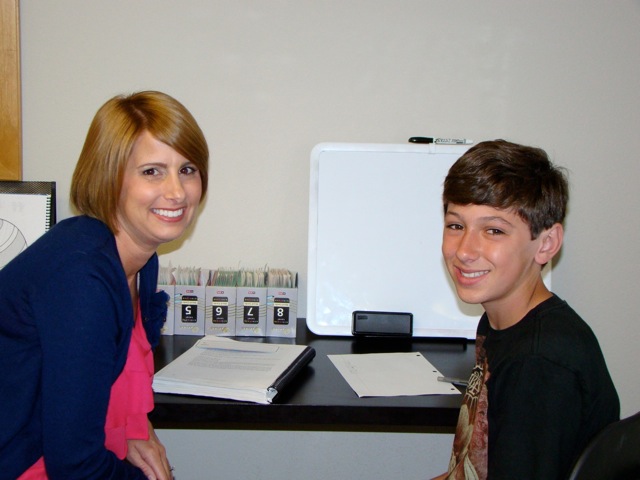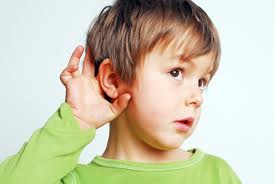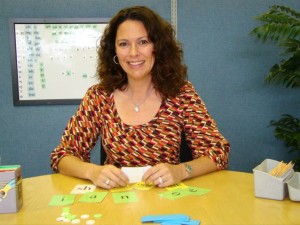
by PRIDE Reading Program Admin | Feb 27, 2015 | Pride Mission Viejo, Summer Programs
PRIDE Learning Center, a specialized tutoring center in Mission Viejo, has announced it will offer a summer reading camp to better meet the needs of children with dyslexia, auditory and visual processing, speech delays, autism, ADHD and other language and learning disabilities.
The summer reading camp at PRIDE Learning Center in Mission Viejo will run weekly from June -August to accommodate busy schedules and traveling families. Children can attend from either 9:00am – 12:00pm or 12:30pm – 3:30 pm Monday –Friday. All of the teachers at PRIDE Learning Center are credentialed with strong special education backgrounds and deliver one-on-one Orton-Gillingham language and reading lessons.
“This summer reading camp at PRIDE is designed to help students in a way that a regular summer school program cannot,” states Center Director May Dabbah. “Summer is a wonderful and effective time for struggling students to boost their skills and close the reading and comprehension gaps,” says Dabbah
PRIDE Learning Center is a leading tutoring company in Los Angeles and Orange County, for students with learning disabilities. Their reading and comprehension program has been shown to boost student performance almost 2 grade levels in just 3 months. The Orton-Gillingham instruction develops the underlying reading and comprehension skills necessary for students with dyslexia, auditory processing, visual processing, autism, speech delays, ADHD and other learning challenges. It is common to see years of reading improvement after just weeks of intensive instruction.
“Although the reading camp is intensive and highly structured, the teachers at PRIDE make it really fun and super engaging for the kids. The kids love it and we have families return to us each summer,” says May Dabbah.
Individuals interested in the summer reading camp at PRIDE Learning Center in Mission Viejo can call (949) 484-0230, visit the website at www.pridelearningcenter.com or email info@pridelearningcenter.com.

by PRIDE Reading Program Admin | Jan 28, 2015 | A PRIDE Post, Auditory Processing Disorder
If your child has auditory processing and finds it difficult to concentrate and retain information, here are a few fun activities that you and your child can do together that will target and improve auditory processing skills:
Practice sequencing with sounds
Ask your child to cover his eyes with his hands while you make a noise such as closing the door, sneezing, or playing a key on the piano. Have your child first identify the noise. Then try two noises, one after the other. Your child will then identify the two sounds in sequence. Add the number of sounds in the sequence until your child gets tired with the game. Some ideas for noises are:
- Whistling
- Snapping fingers
- Sharpening a pencil
- Hammering
- Tearing paper
- Slamming a book closed
- Ringing a bell
- Blowing a whistle
- Clapping
- Coughing
- Drumming with fingers
- Hammering
- Crumpling paper
- Unwrapping candy
Name the mistake
Recite or read aloud a familiar text, poem or rhyme changing its words or wording. Your child should raise his hand whenever an error occurs. You can change the words, grammar, phonemes and meaning. Also, you can swap word order or word parts. Here are a few examples:
- Once a time upon…
- Old McDonald had a fern…
- Twinkle, twinkle little car…
Clapping syllables
Start out by pronouncing each family member’s name by clapping it syllable by syllable. Then ask your child to say and clap the name along with you. Each clap represents a syllable or word part. After each name has been clapped ask, “how many syllables did you hear?” You can also have your child place two fingers under her chin, so that she can feel her chin drop for each syllable. This also allows your child to feel the vibration of each syllable.
Sound substitution
In this activity, your child will make new words by replacing the first sound in the word with the target sound. For example, target the phoneme /l/. Ask your child to substitute the /h/ in ‘hand’ with /l/. The word now becomes ‘land.’
Sound sort
Make picture cards using magazines or computer art. Glue the pictures on index cards and laminate them if you can. Spread selected pictures in front of your child and ask him to find the picture whose name starts with a certain sound. As each picture is found, have your child name the picture and the initial sound. For example you can say, “what picture begins with the sound /s/?” Your child might respond “Snake, /s/.” Examples of some pictures include:
Picture guess
Using the same pictures, place them in a bag. Pick out a picture from the bag and don’t show it to your child. Pronounce the name of the picture, phoneme by phoneme. For a picture of a cat, you will say /c/ /a/ /t/. Then your son guesses what the picture is from your isolated sounds. Take turns guessing each other’s pictures.
Listen for sounds
Have your child sit on the floor, close his eyes and identify sounds that you make. You can drop a pencil, bounce a ball, tap on the window, use a stapler, cut with scissors, sip on a cup of coffee or type on your computer. Trade roles and then let the child make different sounds that you have to identify.
Outside noises
Sit outside under a tree with your child. Listen for various sounds like birds chirping, airplanes flying overhead, cars driving by, voices of children playing are pretty fun to identify. You can have a little notebook on hand and keep a list of all of the different sounds you come across.
Repeat after me
Sit across from your child and clap your hands to a rhythmic pattern alternating between slow and fast tempos. Have your child repeat the pattern. You can also use various instruments, play a drum or bounce a ball to a variety of rhythms. Switch roles and let your child be the sound leader as well.
Hide and seek
Hide a metronome or a ticking clock somewhere in your home. Have your child find it by locating the sound. Another variation of this game can be played outside. You can hide somewhere and blow a whistle. The child will then follow the sounds to find where you are hiding.
Read rhyming books
Repetitive rhyming books help children listen carefully to the similar sounds of rhyming words. Some great rhyming books are “Hop on Pop”, “Fox in Socks”, Goose on the Loose” and “Goodnight Moon.”
Sing songs
Sing songs together that involve repeating previous verses, such as “Old MacDonald Had a Farm”, “Over in the River”, “The Twelve Days of Christmas” and “The Green Grass Grows All Around.”
Practice focusing
Read a very simple story to your child with soft music playing in the background. Before reading the story, tell your child to listen for specific pieces of information in the story (for example the main characters name). You can gradually increase the difficulty of the information you want your child to listen for.
Comprehension check
Read an unfamiliar story to your child. Afterwards ask your child questions about the sequence of events. What happened first, who went to the game, etc. Continue to ask questions until the events in the story have been reviewed. You can also ask your child to predict likely events in the story.
Karina Richland, M.A., is the Founder of PRIDE Learning Centers, located in Los Angeles and Orange County. Ms. Richland is a certified reading and learning disability specialist. Ms. Richland speaks frequently to parents, teachers, and professionals on learning differences, and writes for several journals and publications. You can reach her by email at karina@pridelearningcenter.com or visit the PRIDE Learning Center website at: www.pridelearningcenter.com

by PRIDE Reading Program Admin | Jan 12, 2015 | Auditory Processing Disorder, Pride Orange County
An Orange County tutoring center is offering help for kids that have auditory processing disorder.
Children with auditory processing will often struggle in a classroom setting, especially in the areas of reading, comprehension and language skills. These children are unable to process the information they hear in the same way as others because something adversely affects the way their brain recognizes and interprets sounds, most notably the sounds composing speech.
“Auditory processing disorder affects about 5% of school-age children,” says Karina Richland, owner of PRIDE Learning Centers. “Reading and comprehension are very difficult for children diagnosed with auditory processing and these children end up struggling so much in school because of it.”
PRIDE Learning Center teaches children with auditory processing disorder how to read, write and comprehend using a multisensory method called the Orton-Gillingham approach. It is an intensive one-on-one reading program that stresses teaching the entire structure of written English through a systemized teaching of letters and their corresponding sounds.
“The Orton-Gillingham approach is highly successful for kids struggling with auditory processing because it is so structured, repetitious and multisensory,” says Richland. “ Our kids use all of their senses when they learn and are therefore better able to store and retrieve the information. A child, for example might see the letter B, say its name and sound, and write it in the air all at the same time.”
All of the reading specialists at PRIDE Learning Center are credentialed teachers with strong special education backgrounds and are Orton-Gillingham Certified.
PRIDE Learning Centers are located in Mission Viejo, Newport Beach and San Clemente. For more information contact May Dabbah at 949-484-0230 or visit the website at www.pridelearningcenter.com

by PRIDE Reading Program Admin | Nov 5, 2013 | A PRIDE Post, Autistic Spectrum
Autism Spectrum Disorders include difficulties with nonverbal communication, socialization, and empathy. Children diagnosed with an autism spectrum disorder have difficulty understanding what other people are saying, need help playing with other children, thrive on routines, and find unfamiliar situations difficult. Symptoms in these children can range from very mild to severe social and cognitive delays. This disorder is not necessarily associated with any reading disabilities, but many children with autism struggle with reading difficulties due to language delays.
Autism is a complex developmental disability that typically appears during the first three years of a child’s life. A child with autism will process and respond to information in interesting ways. Although some children can function at a relatively high level, many children with autism have serious cognitive impairments or intellectual disabilities, and some never gain the capability to speak. A child with autism may seem closed off and shut down or locked into repetitive behaviors and rigid patterns of thinking. They might avoid eye contact and resist physical contact, such as hugging, or may have frequent temper tantrums or remain fixated on a single item or activity such as spinning objects. Also, sensitivity to pain could be higher or lower than typical.
The severity of autism can vary, ranging from mild to severe. Children with mild to moderate symptoms are considered “high-functioning.” Two children may share the diagnosis of autism, but behave very differently and have very different skill sets as well as abilities.
Children diagnosed with Autism often struggle in reading and writing skills. These children might have poor phonemic awareness abilities due to the auditory processing problems, which are common in children with ASD. Receptive language problems may also be present in these children. If you can’t hear the sounds, you can’t say the sounds and finally, you can’t read the sounds!
Hyperlexia is a condition where a child demonstrates an early and intense fascination with letters, numbers, patterns and logos, and a self-taught gifted ability to read, spell, write, or calculate, usually before the age of five. At the same time, these children have major difficulty understanding and using oral language skills, as well as socializing and interacting appropriately with people.
Although the early achievement of reading ability makes hyperlexia seem very different than a reading disability, both conditions are rooted in difficulties with understanding and using language. A child diagnosed with hyperlexia is often highly intelligent, learning best from visually presented information. This child can easily manipulate and understand written symbols for language and concepts, and decodes and encodes quite well. They also can read very fluently. Children diagnosed with hyperlexia usually read well but struggle considerable in the area of reading comprehension. Specific comprehension strategies need to be taught to these children including summarizing, making inferences, finding the main ideas, visualizing while reading and understanding and learning new vocabulary.
____________________________________________________________________________________________________________________

Karina Richland, M.A. is the Founder and Director of PRIDE Learning Centers, located in Los Angeles and Orange County. Ms. Richland is a certified reading and learning disability specialist. Ms. Richland speaks frequently to parents, teachers, and professionals on learning differences, and writes for several journals and publications. You can visit the PRIDE Learning Center website at: www.pridelearningcenter.com





